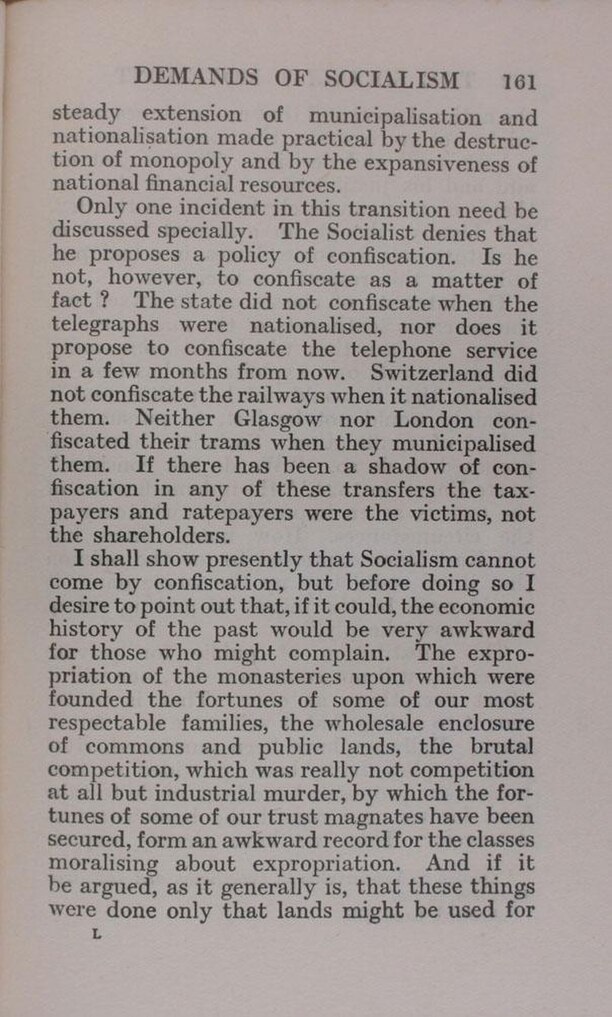steady extension of municipalisation and nationalisation made practical by the destruction of monopoly and by the expansiveness of national financial resources.
Only one incident in this transition need be discussed specially. The Socialist denies that he proposes a policy of confiscation. Is he not, however, to confiscate as a matter of fact? The state did not confiscate when the telegraphs were nationalised, nor does it propose to confiscate the telephone service in a few months from now. Switzerland did not confiscate the railways when it nationalised them. Neither Glasgow nor London confiscated their trams when they municipalised them. If there has been a shadow of confiscation in any of these transfers the taxpayers and ratepayers were the victims, not the shareholders.
I shall show presently that Socialism cannot come by confiscation, but before doing so I desire to point out that, if it could, the economic history of the past would be very awkward for those who might complain. The expropriation of the monasteries upon which were founded the fortunes of some of our most respectable families, the wholesale enclosure of commons and public lands, the brutal competition, which was really not competition at all but industrial murder, by which the fortunes of some of our trust magnates have been secured, form an awkward record for the classes moralising about expropriation. And if it be argued, as it generally is, that these things were done only that lands might be used for
